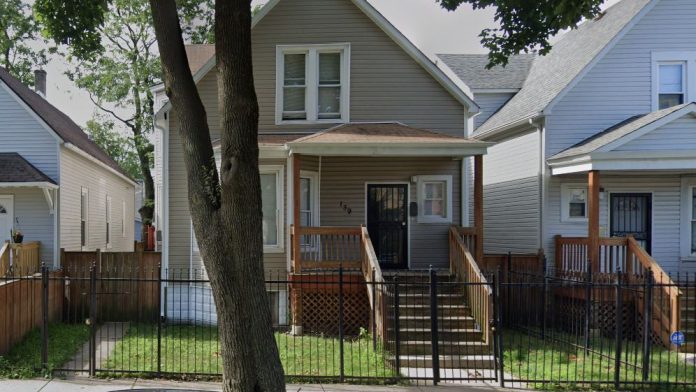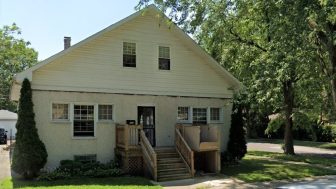Cornerstone Recovering Community
11001 S Wentworth Ave
Chicago, IL 60628

About Cornerstone Recovering Community
Cornerstone Recovering Community in Chicago, Illinois is a long term sober living home for adult men. This means that men typically stay here for longer than 30 days. Adult men over the age of 18 are welcome.
A Home for Men That Fosters Sobriety
This facility is primarily a transitional sober living home which means that they provide an environment for men that is free from drugs and alcohol and gives them the support of a sober community. They may provide some counseling or links to community resources but their main goal is to help men transition from inpatient or intensive rehab programs into living independently when they’re ready.
The residence accepts people from all walks of life such as LGBTQ+ clients, clients with HIV or AIDS, and clients referred by the legal system. Veterans and seniors are welcome as well. Cornerstone can be a good choice for men who have experienced trauma, have experienced sexual abuse, and/or have been diagnosed with substance abuse co-occurring with mental health disorders.
Exploring the Area During Free Time
Residents can use the transit system to get around the city easily because the nearest bus stop is a three minute walk. Several restaurants are less than a mile from the house. This includes the vegan eatery DaVegiNista, Momty’s Grill, New Taste of Chicago, and Pepe’s Mexican Restaurant. For a client looking for an area to relax and meditate, Lake Michigan is a 30 minute walk.
Addiction Treatment Programs
Some of the most common services offered in a young adult program in Illinois include individual and group counseling, medication management, educational courses, and 12-step programs. These programs are tailored to address the challenges of this stage of life.
Individuals who are struggling with addiction to drugs or alcohol can get support at an adult program in Illinois. Designed for men and women over the age of 18, these programs offer rehabilitation treatment and recovery services.
Each alcohol rehab in Illinois is unique, but most include three basic aspects of treatment: medical detox, psychotherapy, and medication. Through these methods, participants receive treatment for the physical, mental, and emotional aspects of alcohol use disorder.
Men’s rehab in Illinois typically includes individual, group, and family therapies. Group sessions are conducted with men only, which encourages greater vulnerability and sharing opportunities among participants.
Women who have substance use disorders are more likely than men to have co-occurring mental health disorders. Women’s rehab in Illinois often provides treatment for dual diagnosis, so women can get help for their addiction and disorders such as anxiety or depression.
Learn the skills you need to break free from opioid dependence at opioid rehab in Illinois. Program options include detox, inpatient rehab, outpatient rehab, counseling, and medication assisted treatment programs, which are tailored to meet the needs of the individual.
Women who have substance use disorders are more likely than men to have co-occurring mental health disorders. Women’s rehab in Illinois often provides treatment for dual diagnosis, so women can get help for their addiction and disorders such as anxiety or depression.
Veteran’s rehab in Illinois is specialized addiction recovery that is dedicated to military Veterans. Treatment often addresses substance use and common co-occurring mental health disorders.
Levels of Care
Outpatient rehab in Illinois may be brief or long-term, depending on the individual. During this time, you will maintain membership in a support group as well as attend one-on-one counseling sessions. The focus is ongoing development of life skills that will prevent relapse.
An Illinois dual diagnosis program treats both your mental health and recovery needs. Psychiatrists and addiction specialists work together to address co-occurring disorders, such as depression, anxiety, or ADHD.
Inpatient rehab in Illinois features intensive clinical supervision and a highly structured and supportive environment, meaning this level of care is especially well suited for clients just beginning their recovery journey and those at risk of relapse.
The first step toward a drug-free future is typically detox. This initial phase of drug rehab in Illinois can last up to a week. During this time, addictive substances are slowly and safely cleansed from your body.
Sober living in Illinois offers an environment where you can focus on your recovery journey. You’ll live in a drug-free residence, where you’ll contribute to household bills and chores, attend 12-step meetings, and submit to random drug testing. This structured environment can be helpful to maintain sobriety during the first few months of recovery.

